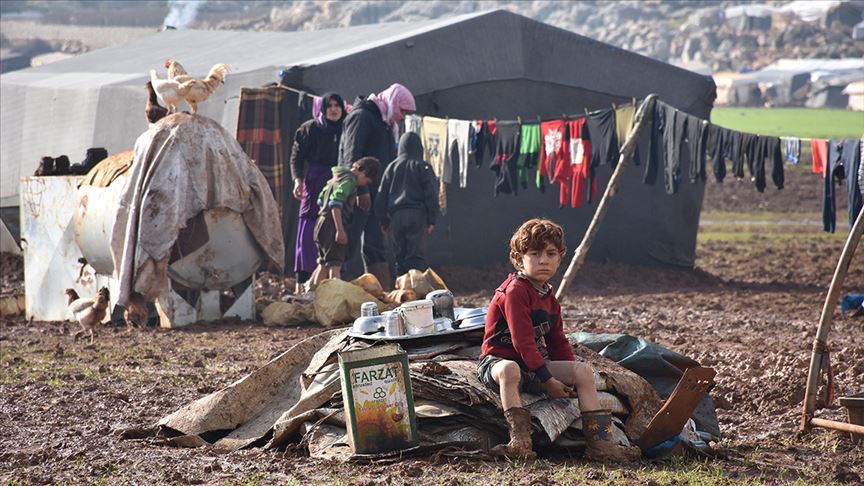In displacement camps north of Idleb, Syrian women are living in arduous conditions to this day. They lack a safe space for their personal freedom, even within their tent, a basic right.
Many young women and girls do not have defined positions in some informal camps in Idleb, which have been built near each other in a continuous manner. These arrangements have remained in place since the displacement campaigns started years ago.
“Since my family and I have stayed in this camp in the Qah area, north of Idleb, I have lost the meaning of privacy in my family life within the small tent, along with the other tents. We have a shared wall with my neighbors’ tent, and their conversations reach us without any trouble as if we were living in a shared house. I do not feel independent in my home, because I am never far from watching strangers,” said Ms. Fida, a displaced woman from the southern Idleb countryside.
Fida’s tent did not have a kitchen, a bathroom, or a room separate from her children. Instead, her cramped living space forces her to combine all the tent’s amenities within one section, leaving only a small space for the rest of the family.
“I suffered a lot going out to the public bathrooms before I carved out a private bathroom inside my tent. I was also very embarrassed and scared when I first took one of my children to the toilet at night,” Fida tells us.
Fida is the mother of two girls and three young boys, who live in a tent not more than a few square meters in area. They do not experience calm during the day, nor do they feel safe and private at night. This is because there is no large space, Fida says: “I put up a curtain of canvas and divided the tent into two parts to feel a little privacy, which I have lacked for a long time.”
Read Also: Opening of ‘Foundation for Polygamy’ in Syria Met with Satire and Outrage
Fida lives in similar circumstances to hundreds of women who face perilous conditions. Some women have grown accustomed to this lifestyle, while others dream of changing their situation.
“This open area has become my kitchen since I moved here. I collect plastic sticks and residues early in the morning to set a fire and make food,” she tells us.
She laughs as she tells us that all the campers know what she cooks, so there is no privacy for women even in their kitchens — or at bath times.
According to the latest statistics from the Response Coordinators team, some 2.1 million of the more than 4 million Syrians displaced, 1,430,869 displaced people are living in camps, distributed among 1,293 camps, including 282 random camps set up on agricultural land. They live there without any UN humanitarian support or assistance, according to some residents there.
“Through my work in raising awareness about violent abuse, I have met many women who have been psychologically harmed by camp life, describing it as the most violent against women,” Sawsan al-Tawil, a psychosocial support worker at a humanitarian organization in northwestern Syria, told SY-24.
“The lack of space and privacy in the camps; the discomfort; the spread of diseases and epidemics; the existence of public bath blocks; the lack of cleanliness and the unpaved mud roads there — all these obstacles continue to be a concern for many women in the camps,” Tawil said.
This article was translated and edited by The Syrian Observer. The Syrian Observer has not verified the content of this story. Responsibility for the information and views set out in this article lies entirely with the author.


